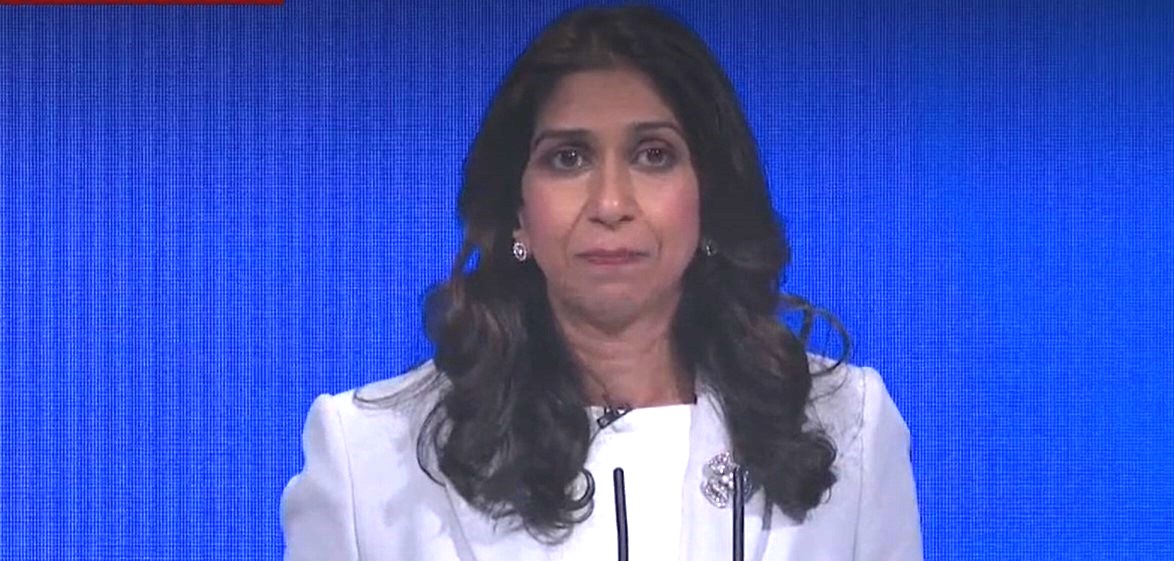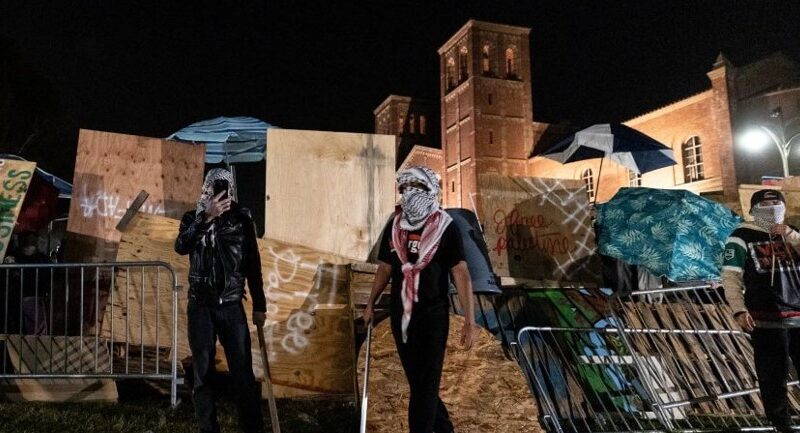The standout feature of this week’s Tory conference was the fact that the party is split down the middle. Besides the Prime Minister himself, a largely flat conference was cheered only by the speeches of the most right-wing pretenders to his throne.
Rishi Sunak came into office through the nominations of his MPs alone – ‘crowned’ without opposition – so there was not even a contest within the Tory Party membership, let along the public at large. The party faithful assembled in Manchester gave us a good glimpse, therefore, of where their sympathies lie.
Sunak’s main task when he became leader was to steady a ship tossed in all directions by political and economic storms. Liz Truss, in the shortest-ever tenure as Prime Minister, managed to spook the international markets so much by her unfunded tax cuts for the wealthy, that interests rates on government gilts went through the roof and she had no option but to resign.
As an article in the Financial Times noted at the time, (October 21) put it, “Truss’s resignation marked a defining moment in the tumultuous era of post-Brexit British politics, the death of the dream held by the Conservative right of turning the country, freed from the bureaucratic grip of Brussels, into a free-market nirvana”.
Truss can pack a theatre in Manchester
But although her resignation may have been a “defining moment”, it is clear from the Tory conference that Truss believes she is far from finished. Her ‘growth’ faction is only one of several that have competed for attention at the conference this week.
Neither is it the case that Truss represents just a tiny sliver of opinion on the edges of the party. Her fringe meeting, the “Great British Growth Rally”, almost a year to the day since her government imploded, filled a medium-sized Manchester theatre. To ordinary workers, it may have been a pantomime, but its swivel-eyed audience waited in a long line to get in. Showing how close the Tory Party has morphed into UKIP, that party’s former leader, Nigel Farage, was there too.
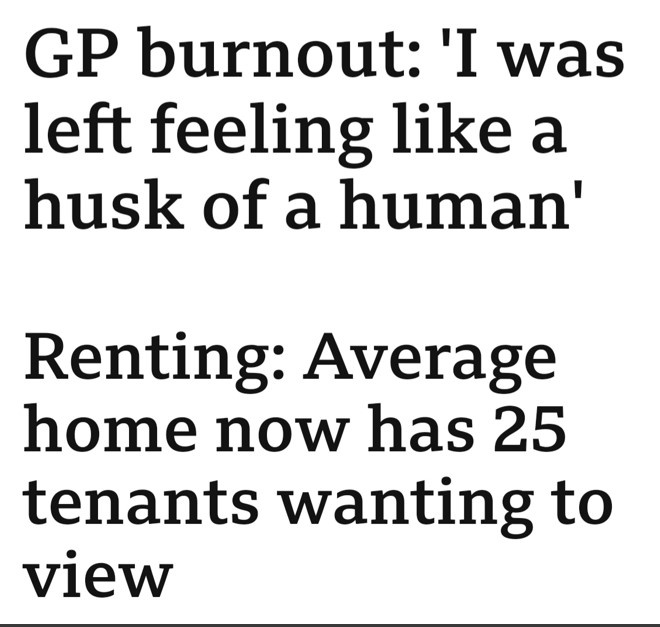
Truss’s ‘Growth’ faction, according to some reports, commands the support of as many as sixty Tory MPs, the same number as Sunak’s working majority. Its membership overlaps with other right-wing groups, like the ‘National Conservatives’ and the ‘Conservative Democratic Organisation’, and it is a growing voice inside the Tory Party.
This is unlike the ‘One Nation’ group of Tory MPs, which, although it claims up to 80 MPs, and purports to being more in keeping with ‘traditional’ Conservativism, was an insigificant voice at the conference.
Sunak’s speech, possibly the last Tory leader’s conference speech before the next election, was jaw-droppingly out of touch with the real needs of the UK population. The three main points he highlighted were cutting HS2, more controls on tobacco sales and yet another new qualification for further education: the last two at any rate hardly enough to raise an eyebrow, let alone get people queuing up to vote Tory.
There wasn’t a peep on the real issues that concern the overwhelming majority of voters: nothing on living standards, housing, the NHS, collapsing schools, energy prices, transport costs. Nothing. It is hardly surprising that so many Tory MPs are gloomy, while others, like Kemi Badenoch, Liz Truss and Suella Braverman are grandstanding for their leadership bids when Sunak fails.
Probably the loudest voice at conference, in terms of her political support, was Suella Braverman, the Home Secretary. She wowed the party faithful in a blatant pitch for her leadership when (as most Tory MPs believe) and not if Sunak loses the next general election.
Enoch Powell brought white supremists to centre-stage
Braverman really is a nasty piece of work. Last week in a speech in the USA, she suggested that fearing persecution for being a woman or gay were not grounds to justify seeking aslyum. She should tell that to gays in some African countries and Iran who are brutalised for their sexuality, or to women in Iran, regularly beaten by ‘morality’ police.
Braverman talked about a “hurricane” of migration facing the UK. It takes some gall for a wealthy woman of Indian origin, serving under the wealthiest-ever Prime Minister, also of Indian origin, to decry immigration.
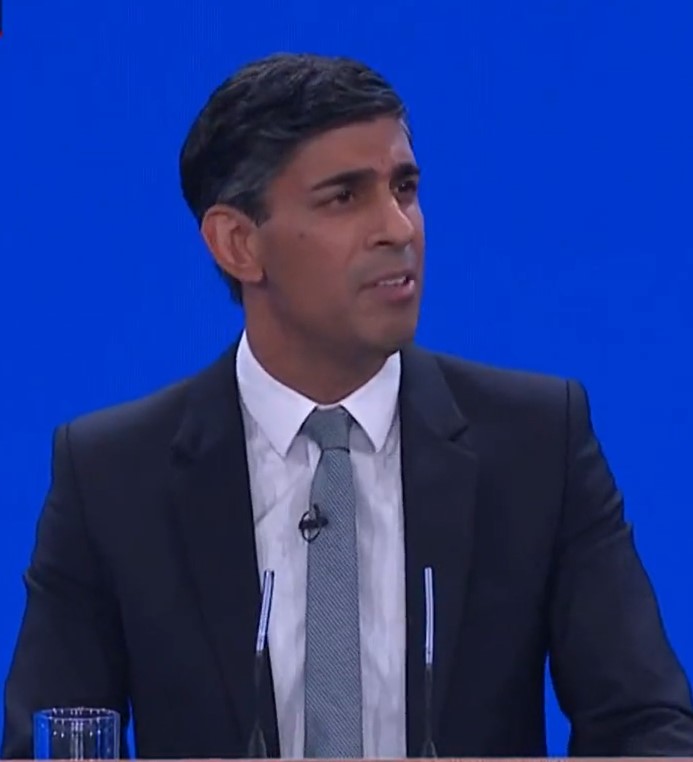
Last month, even the tame press regulator, the Independent Press Standards Organisation (IPSO), was obliged to chide Braverman for an article she published in the Mail on Sunday in April, in which she falsely claimed child grooming gangs in the UK were “almost all British-Pakistani”. (Guardian, September 28)
As the Guardian explained, IPSO ruled that “Braverman’s decision to link ‘the identified ethnic group and a particular form of offending was significantly misleading’ because the Home Office’s own research had concluded offenders were mainly from white backgrounds”.
In other words, an article penned by the Home Secretary deliberately ignored her own department’s hard data, just to get a point across. Why let the facts stand in the way of a good story? Braverman is not unique in the modern-day Tory party, an organisation with no shame and unembarassed at any logical or factual somersaults.
But she panders to all the worse prejudices and hang-ups of the Tory rank and file. In 1968, Enoch Powell, a Tory Shadow Minister, dragged racism and white supremacy into the political centre stage through his infamous ‘rivers of blood’ speech. Tory leader at the time, Ted Heath, sacked him from the Shadow Cabinet immediately.
What Braverman is doing today, is getting away with speeches like Powell’s, in the knowledge that there is no danger of her being dismissed from the Cabinet. She is speaking over the heads of journalists and even over the heads of conference delegates, to address the party faithful for the inevitable future leadership contest. Like Powell, she is dragging racism, xenophobia and homophobia, not to mention alternative sets of facts, into mainstream politics, where they will become important elements of policy in the future.
Braverman is lionised by Tory membership and tabloids
Braverman is particularly important because she is lionised by the worst Tory tabloids and the Tory membership, even though her dog-whistle politics may arouse some disquiet even among her own colleagues in Parliament. That is because she represents, probably better than anyone, the lurch to the right of the Tory party membership in recent years.
In the short term, this wing of the Tory Party will only guarantee the party’s defeat in the coming general election. They have nothing to offer to ordinary working class people, or voters in general, but empty words and slogans. They will only reinforce the huge lead in the polls that Labour has among younger voters, for example.
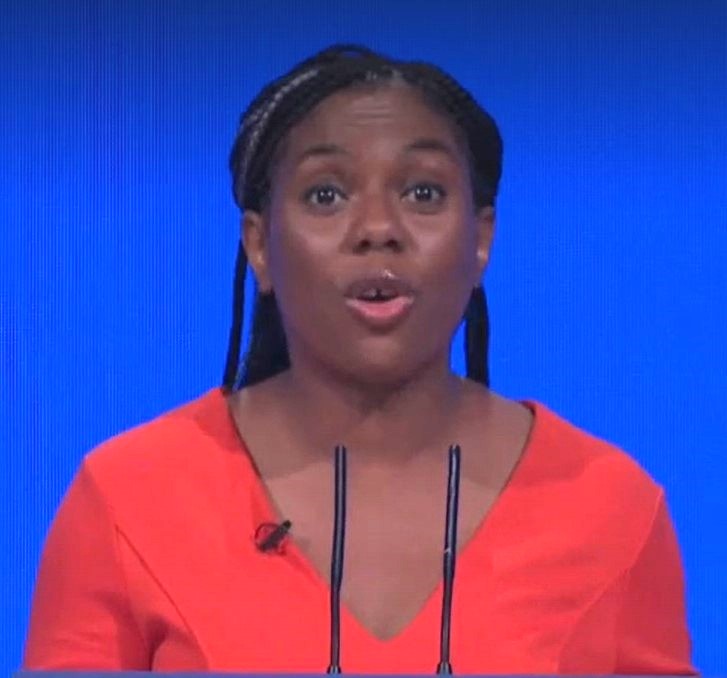
But in the longer run, the lurch to the right among such a significant number of Tories represents a dangerous and ominous development, of which socialists should take note.
Once in office, any Labour government is faced with the choice of either using the mobilised power of the labour movement to tackle head-on the vested interests of capitalism – and that is the only way it can implement meaningful improvements in the lives of workers – or it can bow the knee to those same vested interests and be obliged to carry through counter-reforms.
Those angry at Starmer will not all face left
Unfortunately, looking at the policies and trajectory of Keir Starmer and Rachel Reeves, it is the latter course that looks more likely. But whilst that will invoke anger and resistance to the party leadership inside the trade unions and the CLPs – and the development of a new left – outside the ranks of the organised labour movement, there could be a resurgance of xenophobic, racist and other reactionary ideas, egged on by the billionaire-owned tabloids. It is the Braverman wing of the Tory party that will fit into that political niche, alongside the Farages, the Rees-Moggs and the Trusses.
The historic splits that are taking place in all of the main political parties are a direct result of the sharpening polarisation within society between the opposing class interests of capital and labour. This is an historic and unprecedented political epoch in which we all live.
How and under what circumstances the Tory Party will split are impossible to predict, but split it will. And while we should not exaggerate its influence at this stage, one part of the Tory right will provide the basis of an incipient neo-fascist movement that will come to threaten the rights and even the very existence of the labour movement. For that reason, if nothing else, we should pay attention to what is going on in the Tory Party.
[Pictures from BBC streamed coverage of the conference]

